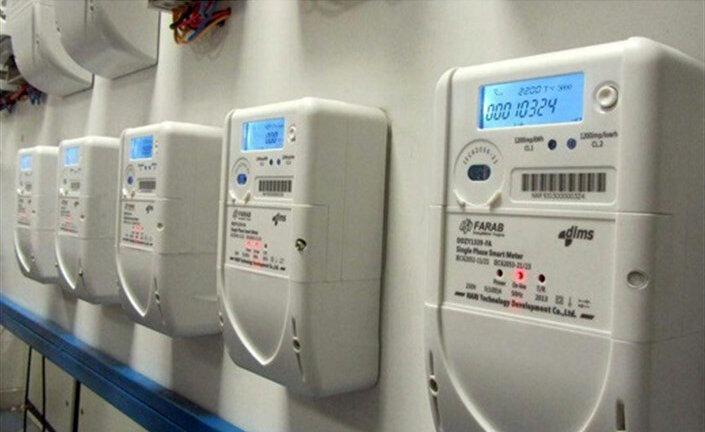The huge metering gap in the electricity sector was an opportunity to create employment for young Nigerians to enable them to contribute to nation-building
The federal government is expected to begin distribution of meters to electricity customers by first quarter (Q1) of 2025 under the Presidential Metering Initiative (PMI),BusinessDay has learnt.
Tunji Bolaji, special adviser to the minister of power on strategic communications and media, disclosed this to BusinessDay on Monday.
Through the PMI, the federal government aims to close the metering gap as well as put an end to estimated billing in Nigeria by providing 10 million meters in 5 years.
BusinessDay’s analysis shows that of as of 30th June 2024, only 5,993,340 (45.43 percent) out of the 13,192,573 registered electricity customers across the twelve DisCos had been metered.
Speaking with BusinessDay, Bolaji said, “We are still on course with the Presidential Metering Initiative and we expect delivery of meters to begin by first quarter of next year. The plan is to distribute about two million meters next year and 10 million meters in five years and it will done in tranches.
“The government is working with the local manufacturers because the minister, in recent months, have had to inspect the local manufacturers to be sure they can deliver on the project. So we expect meters from the local manufacturers.”
He also disclosed that plans to roll out 3.2 million meters under the World Bank Distribution Sector Reform Program (DISREP) is on course and implementation is expected this month.
Adebayo Adelabu, minister of power, in October, announced that the federal government had procured 1.3 million meters under the DISREP initiative, noting that Nigeria will receive 1.3 million electricity meters between December 2024 and the second quarter of 2025.
This follows the move by Nigerian Electricity Regulatory Commission in June 2024 to meter all customers under the Band A feeders across the country through the Meter Acquisition Fund (MAF).
The eleven electricity distribution companies (DisCos) in the period received a total of N21 billion from the Meter Acquisition Fund (MAF) scheme for the procurement and installation of meters for unmetered Band ‘A’ customers within their franchise areas.
The total fund, according to the NERC, is the first tranche of disbursement from the MAF scheme based on contributions made by DisCos as at the April 2024 market settlement.
According to an Order on the ‘operationalization of ‘Tranche A of the Meter Acquisition Fund’ issued by NERC and sighted by BusinessDay, of the total sum, Abuja Electricity Distribution Company (AEDC) received N2.99 billion; Benin Electricity Distribution Company (BEDC), N1.57 billion; Eko Electricity Distribution Company (EKEDC), N2.92 billion; Enugu Electricity Distribution Company (EEDC), N1.72 billion; Ibadan Electricity Distribution Company (IBEDC), N2.51 billion.
Total amounts received by other DisCos are: Ikeja Electricity Distribution Company (IE), N4.35 billion; Jos Electricity Distribution Company (JEDC), N521 million; Kaduna Electricity Distribution Company (KAEDC), N1.22 billion; Kano Electricity Distribution Company (KEDCO), N1.56 billion; Port Harcourt Electricity Distribution Company (PHEDC), N1.36 billion; and Yola Electricity Distribution Company (YEDC), N243 million respectively.
The introduction of the MAF followed the failures of previous programmes and strategies including the Meter Asset Provider (MAP) Regulations 2018 and the Meter Asset Provider and National Mass Metering [MAP&NMMR) Regulations in 2021, introduced by past administrations to address metering challenges in the Nigerian Electricity Supply Industry (NESI). This is as the total metering gap currently stands in excess of 7 million customers.
According to NERC, the inability of DisCos to raise financing in the form of debt or additional equity was identified as the major constraint in the acquisition and deployment of end-use meters and other capital investments.
“The Meter Acquisition Fund (MAF) scheme was therefore developed and approved by the Commission, primarily to address the challenge of DisCo creditworthiness inhibiting the deployment of end-use meter in NESÏ by creating a credible revenue stream from the market funds on the back of which long term financing may be secured by the utilities.
“The Federal Government has approved the Presidential Metering Initiative (PMI) with the overarching objective of closing the metering gap in the NESI within three years leveraging on smart metering technologies for data analytics.
“The MAF shall form one of the revenue streams for the repayment of the long-tenor financing for metering. The Commission approved the deregulation of meter prices under the MAP scheme vide Order NERC/2024/040 to ensure on efficient pricing of meters while responding more quickly to changes in macroeconomic parameters. The Order provides that all prices of meters under the MAP scheme shall be determined through a transparent and competitive bidding process by eligible MAPs.
“The funds accrued as at the April 2024 market settlement cycle and available for procurement of meters under the first tranche of the MAF scheme is in the sum of NGN21.86 billion. The Commission hereby approves the use of a sum of NGN21 billion apportioned pro rata to contribution by the DisCos as Tranche A of the MAF scheme.,” the commission said.
It noted that while the NESI is expected to leverage on the revenue stream under the MAF framework to raise substantial capital funding for metering, there is an imperative to accelerate the closure of the metering gap for all customers currently classified under tariff Band A, for revenue protection and facilitating demand side management for the affected customers.(NERC)
